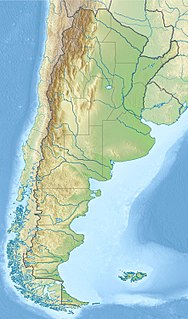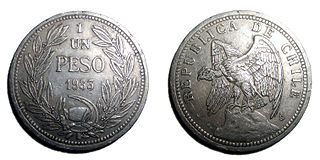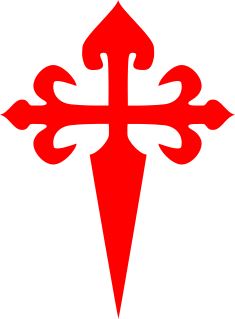 W
WThe Presidential Republic is the period in the history of Chile spanning from the approval of the 1925 Constitution on 18 September 1925, under the government of Arturo Alessandri Palma, to the fall of the Popular Unity government headed by the President Salvador Allende on September 11, 1973. The period spans the same time as the "Development inwards" period in Chilean economic history.
 W
WThe 1949 Tierra del Fuego earthquakes occurred slightly more than eight hours apart on 17 December. Their epicenters were located in the east of the Chilean Tierra del Fuego Province, close to the Argentine border on the island of Tierra del Fuego.
 W
WThe Agrarian Labor Party was a Chilean political party supporting the candidacy of Carlos Ibáñez del Campo for the 1952 presidential election. Formed in 1945, it was dissolved in 1958.
 W
WThe Ariostazo occurred on August 25, 1939, and was a brief revolt of the Tacna artillery regiment, led by General Ariosto Herrera, in what turned out to be a non-violent attempt against the government of Chilean President Pedro Aguirre Cerda.
 W
WThe Chilean naval mutiny of 1931 was a violent rebellion of Chilean Navy enlisted men against the government of Vice President Manuel Trucco.
 W
WThe Confederation of Democracy was an electoral alliance of center-right Chilean political parties formed in July 1972. Its main purpose was to unite all the opposition parties of the Popular Unity government to face the parliamentary elections on March 1973. Its main objective was to optimize the collection of votes and seats, and accomplish the majority of Congress and thus obtain at least two thirds of the deputies.
 W
WProduction Development Corporation (CORFO) is a Chilean governmental organization that was founded in 1939, by President Pedro Aguirre Cerda, to promote economic growth in Chile.
 W
WThe FRAP was a Chilean left-wing coalition of parties from 1956 to 1969. It presented twice a common candidate, Salvador Allende, for the 1958 and the 1964 presidential elections. Succeeding to the FRENAP formed the preceding year, the FRAP itself was succeeded by the Popular Unity coalition.
 W
WGovernment Junta of Chile, was a political structure established during the anarchy that followed the resignation of President Carlos Ibáñez del Campo. The Socialist Republic of Chile ended with the election of Arturo Alessandri as new president of Chile.
 W
WMovimiento Nacional Socialista de Chile was a political movement in Chile, during the Presidential Republic Era, which initially supported the ideas of Adolf Hitler, although it later moved towards a more local form of fascism. They were commonly known as Nacistas.
 W
WThe Vanguardia Popular Socialista was a far-right Chilean political party created in 1938. It was the direct heir of the National Socialist Movement of Chile (MNS) and founded as a consequence of the failed fascist coup in 1938 and its repression. It included Jorge González von Marées, while former MNS member Carlos Keller refused to join it. The VPS obtained 2,5% at the 1941 legislative elections, having two deputies elected, one of them being Jorge González von Marées.
 W
WThe Popular Unity was a left-wing political alliance in Chile that stood behind the successful candidacy of Salvador Allende for the 1970 Chilean presidential election.
 W
WSalvador Allende was the president of Chile from 1970 until 1973 when he died, and head of the Popular Unity government; he was the first Marxist ever to be elected to the national presidency of a liberal democracy in Latin America. Though the 1970 election was legitimate, in August 1973 the Chilean Senate declared the Allende administration to be "unlawful", due in large part to its expropriation of private property. Allende's presidency was ended by a military coup before the end of his term.
 W
WThe Riñihuazo is the name given to the landslide damming of Riñihue Lake on 22 May 1960, after a landslide caused by the Great Chilean earthquake blocked its outflow. According to the chronicler Mariño de Lobera a similar event occurred after the 1575 Valdivia earthquake.
 W
WThe Seguro Obrero massacre occurred on September 5, 1938, and was the Chilean government's response to a attempted coup d'état by the National Socialist Movement of Chile (MNSCh), whose members were known at the time as Nacistas as a Spanish version of "Nazis", with some differences that justified their option for a different name. After a failed coup involving a stand-off and a shootout, about 60 Nacistas who had surrendered after being given assurances, were summarily shot. About twenty others were killed during the fighting.
 W
WThe Social-Republican Union of the Wage Earners of Chile was a Chilean left-wing political party which existed between 1925 and 1927.
 W
WThe Socialist Republic of Chile was a short-lived political entity in Chile, that was proclaimed by the Government Junta that took over that year.
 W
WThe Tacna–Arica compromise or Treaty of Lima was a series of documents that settled the territorial dispute of both Tacna and Arica provinces of Peru and Chile respectively. According to the Treaty, the Tacna-Arica Territory was divided between both countries; Tacna being awarded to Peru and with Chile retaining sovereignty over Arica. Chile also agreed to pay up to 6 million dollars in compensation to Peru.
 W
WThe United Conservative Party was a right-wing Chilean political party founded in December 1953 after the merger of the Traditionalist Conservative Party and a faction of the Social Christian Conservative Party, issued from the Conservative Party. It supported for the 1958 presidential election the candidacy of Jorge Alessandri and participated, along with the Liberal Party and supporters of former president Carlos Ibáñez del Campo, in its government. In 1962, it participated in the Democratic Front of Chile center-right coalition which opposed the left-wings FRAP coalition and supported for the 1964 presidential election Eduardo Frei Montalva.